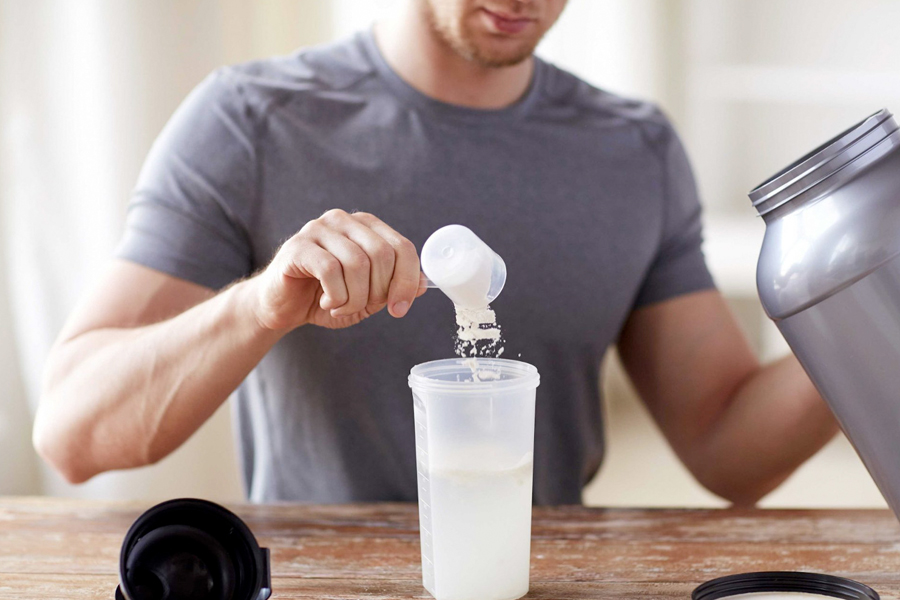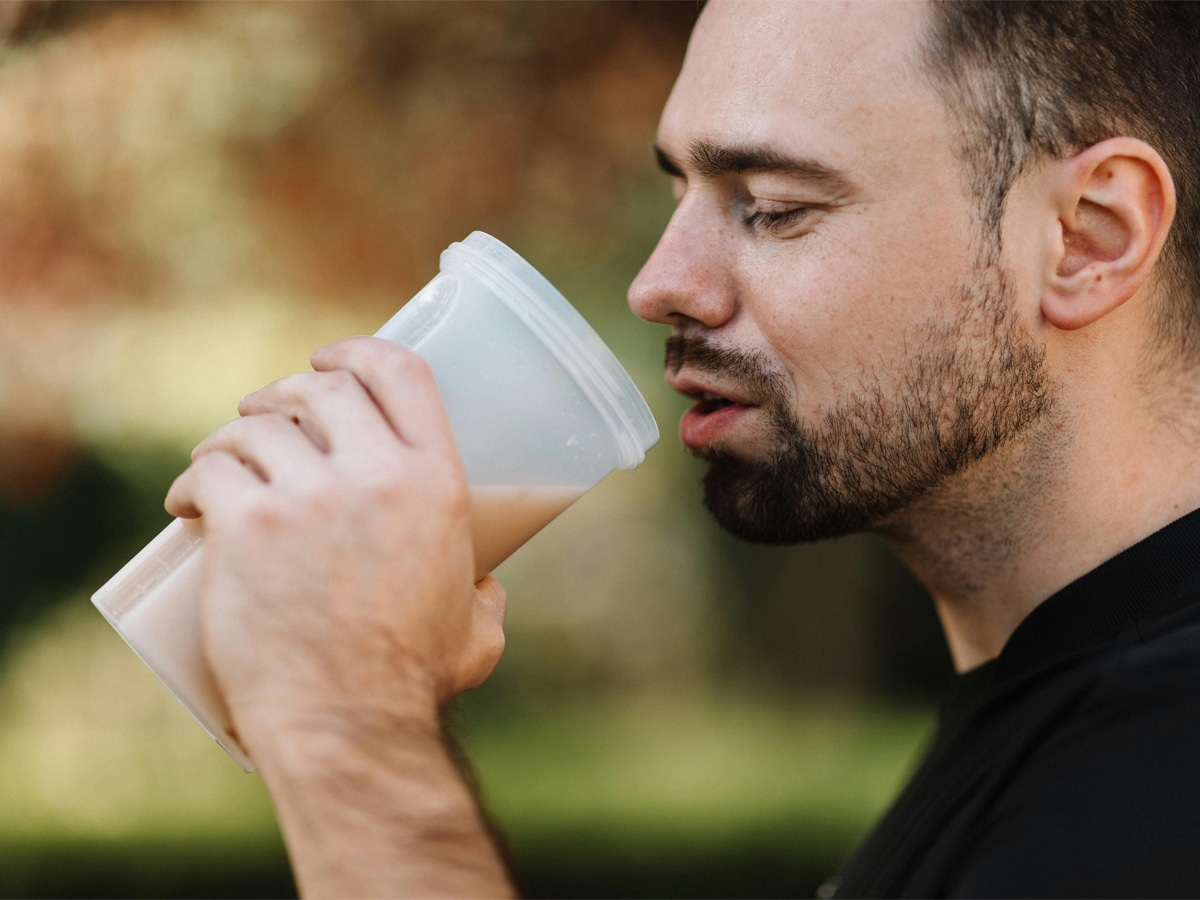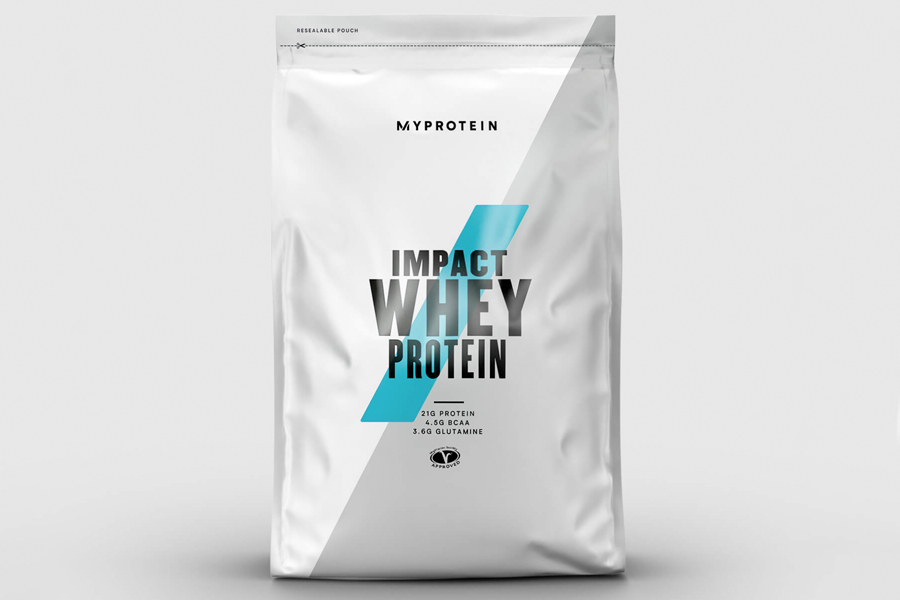
Published:
Readtime: 8 min
Every product is carefully selected by our editors and experts. If you buy from a link, we may earn a commission. Learn more. For more information on how we test products, click here.
To ask whether protein shakes are healthy is to essentially ask the following question: is whey protein good for you? That’s because whey protein powder forms the base of most protein shakes. And while not all protein shakes consist of whey protein powder, we’ll treat the beverage and the supplement interchangeably for the sake of this article.
So are protein shakes healthy or aren’t they? You ask. As with most things these days, the answer isn’t as simple as a mere yes or no answer. To elucidate, the dangers of whey protein can vary from one person to the next, depending on factors like whey allergies or lactose intolerance, both of which will deliver harmful side effects.
You’ll also like:
13 Best Australian Protein Brands
How to Do Push Ups Properly
10 Best Shoulder Exercises for Men
34 Best Bodyweight Exercises for Men
Then we have scenarios where people simply digest too much whey protein powder by consuming too many shakes throughout the day. This too can be potentially hazardous to one’s health. Of course, too much of anything can be hazardous to one’s health so this doesn’t really tell you whether protein shakes are healthy or if they aren’t.
Being that whey protein is widely used by fitness freaks across the world (including numerous celebrities and athletes), it’s important to know about the dangers and benefits of this particular supplement. Let’s get into it.

What is Whey Protein?
One of the primary proteins found in dairy products, whey protein is the liquid that separates from milk during the cheese-making process. When consumed, it provides the body with the nine essential amino acids, i.e. the building blocks that create proteins and enable those proteins to carry out various functions.
Whey protein is most often processed into a powder, which can then be added to liquids or soft foods. Mix it with liquids like water, coconut water, or plant-based milk and you have yourself a protein shake. You can also blend whey protein powder with ice, liquid, and fruit to create a tasty smoothie.
Depending on how the whey protein is processed, it will take either one or a combination of the three following forms:
- Whey protein concentrate: This is the most common type of whey powder and it typically contains 70-80% protein (though sometimes that number goes as low as 30%), along with higher amounts of lactose, fat, and minerals from milk.
- Whey protein isolate: This type is more processed and it contains less lactose and minerals than whey protein concentrate, along with virtually no fat. As the supplement of choice amongst a wide number of bodybuilders and fitness freaks, it’s usually made up of at least 90% protein, if not more.
- Whey protein hydrolysate: This type of whey protein has undergone partial hydrolysis and is considered to be “pre-digested,” allowing the body to absorb it faster.

Benefits of Whey Protein
As you’re likely aware, whey protein powder is used by a number of people as part of their overall fitness regimen. Based on most research to date, the popular supplement reportedly delivers the following benefits:
- Improved muscle recovery – After an intense workout routine, whey protein is believed to help your muscles recover both quickly and efficiently.
- Improved muscle protein synthesis and lean tissue mass – Some studies show that whey protein can promote the growth of lean tissue mass and improve muscle protein synthesis when taken in tandem with a resistance workout routine. Other studies refute the claims that whey protein increases muscle mass and strength.
- Nutritional aid – A number of folks simply don’t get enough protein in their diet while others struggle to gain weight due to certain illnesses. In both these scenarios, whey protein can be taken as a way to help tackle malnutrition.
- Wound recovery – Some studies have shown that whey protein can help expedite the healing from things such as burns and chronic wounds.
- Allergies – It’s been reported that infants who consume whey protein hydrolysate in their formula have a lower risk of developing certain allergic conditions (such as eczema) or reactions than infants who don’t.
- Protection from certain ailments and diseases – This one needs a big asterisk next to it because it’s still highly speculative. However, some of whey protein’s biggest advocates will tell you that it can ward off cancer, lower cholesterol, decrease liver fat, prevent heart disease, reduce blood pressure, and even fight asthma in children. Yes, there are studies to back up at least some of these claims, but don’t take that to mean the science is settled.

Dangers of Whey Protein
You came here asking if protein shakes are healthy and so far, the answer appears to be a resounding yes. But this is the part where we say: not so fast. That’s because there are certain risks involved with the consumption (or overconsumption) of whey protein powder, and with those risks come some whey protein side effects. Before you gulp down your next shake, consider the following potential dangers:
- Whey allergy – A small fraction of adults are allergic to cow milk and whey, in particular. If you are indeed allergic to whey protein and you consume it in high amounts (moderate amounts should still be okay), side effects can include stomach pains, cramps, reduced appetite, nausea, headache, and fatigue.
- Lactose intolerance – Not to be confused with an allergy, lactose intolerance occurs when you can’t properly digest lactose, i.e. the main carbohydrate in dairy products. In this scenario, it’s recommended that you take moderate amounts of whey protein isolate (or a non-dairy supplement), which has far less lactose than whey protein concentrate. Should you consume too much lactose, side effects can include bloating, gas, stomach cramps, and diarrhea.
- Kidney damage for those with kidney disease – If you have healthy kidneys, there is no evidence that whey protein will harm them. However, if you’re suffering from kidney disease, then a high-protein diet can potentially cause further damage.
- Harmful additives – Some protein powders include additives such as thickeners, sweeteners, and preservatives, all of which can be potentially hazardous to your health. Make sure you read the label before purchasing.
- Overconsumption – You take too much of anything in this world and there are bound to be undesirable outcomes in at least some cases. The recommended intake of whey protein is 25–50 grams per day, which amounts to about 1 to 2 scoops. Trust us when we say that certain athletes take far more than that. When all else fails, simply follow the serving instructions.
In summary, whey protein isn’t necessarily harmful, but it can be if you suffer from certain allergies or conditions. Should you have a whey allergy or lactose intolerance, consider taking a non-dairy protein supplement instead, such as one that incorporates soy, pea, egg, rice, or hemp protein.
Last but not least, even if you don’t have a whey allergy or other pre-existing condition, always pay attention to what you’re body is telling you. For example, if you start chugging protein shakes on a regular basis and then experience stomach cramps or other negative reactions soon after, you might safely assume the two things are related. In that scenario, swap out your supplement or practice an elimination diet until you’ve isolated the source of your ailments.

Or check out our 13 Best Australian Protein Brands.
General FAQ
According to the majority of studies, whey protein is only dangerous when you have a pre-existing condition such as lactose intolerance, a whey allergy, or kidney disease. Otherwise, whey protein is safe when consumed in the suggested amounts.
Based on some studies, whey protein has been linked to speedy muscle recovery, lower cholesterol levels, reduced blood pressure, and improved protein synthesis, amongst other things. It can also be used as a weight gain supplement by those who suffer from diseases such as AIDS or HIV.
While some studies have linked the consumption of whey protein to hair loss, there is no hard science currently backing up this claim. In fact, most experts will argue that protein is essential to hair growth, not loss.
In a nutshell, the worst protein powders are the ones that have too many sugars added to them. Be sure to read the label before purchasing.
The best protein powders are the ones that contain the nine essential amino acids while avoiding excess additives like thickeners, preservatives, sweeteners, and fillers.
You’ll also like:
13 Best Australian Protein Brands
The Rock’s Diet and Workout Plan
5 Reasons Why True Protein is the Best Tasting in Australia
































Comments
We love hearing from you. or to leave a comment.